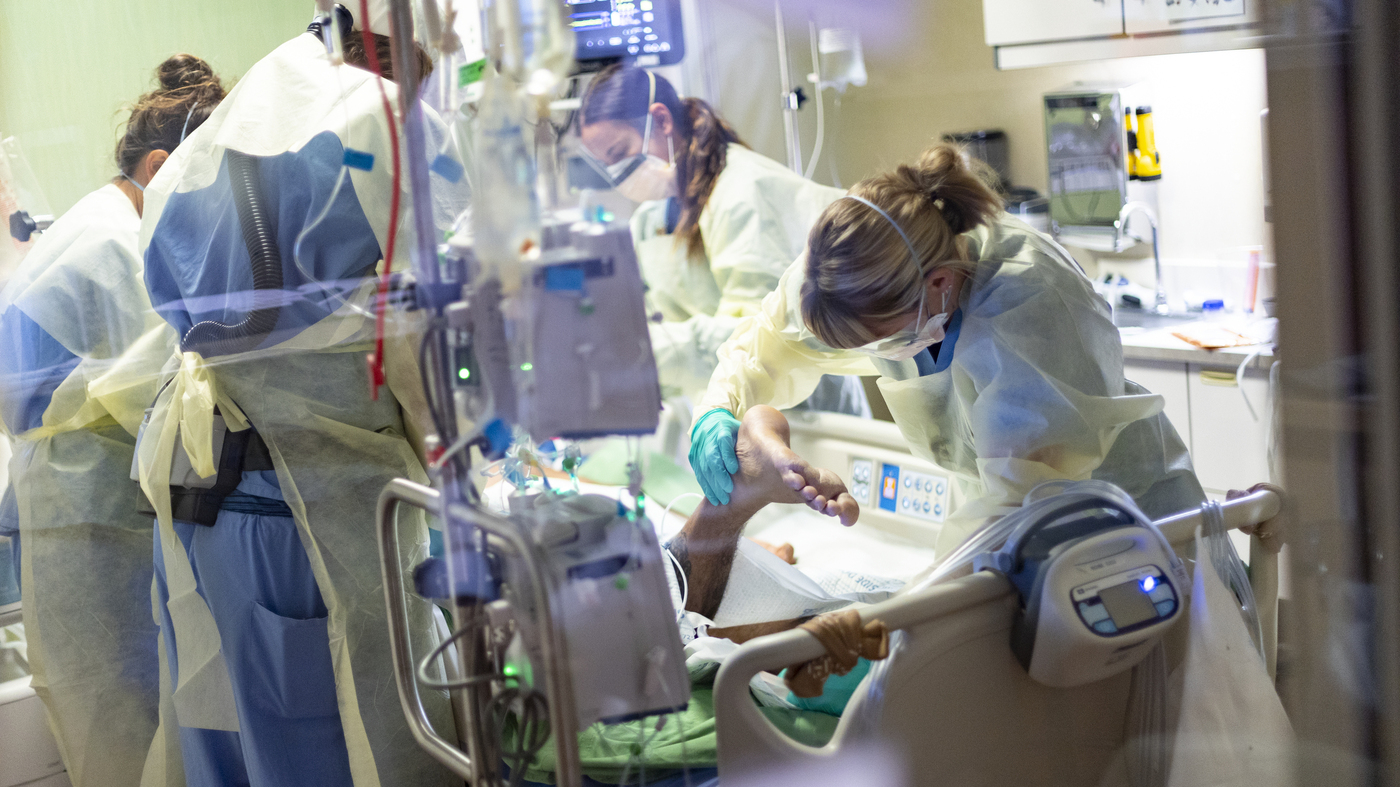The strike at Mercy Hospital is more than two weeks old.
But it isn’t the only place in the country where health care workers have gone on strike or reached the brink of walking off the job.

The ongoing worker shortage could provide leverage for CWA as they continue to negotiate with Catholic Health System, hospital employees and labor experts say.
The reasons health care workers cite for striking are similar: They have endured the demands and exhaustion of working through the pandemic and insist hospitals staff up to help shoulder the workload.
They say their complaints about staffing levels and working conditions preceded the pandemic but have moved to the forefront over the past year and a half with greater attention on their work.
The strikes and threatened walkouts are creating more urgency to confront the issues, at a time when hospital systems say they are struggling to recruit workers.

The state Attorney General’s Office called for Huffmaster to stop providing its services to Mercy Hospital.
The swirl of worker shortages, the pandemic and the pressures health care workers are under have led some labor disputes to spill over into strikes, said Larry Zielinski, a former Buffalo General Hospital president.
“It just exacerbates the normal labor-management issues that have existed in health care for a long, long time,” said Zielinski, an executive in residence for health care administration at the University at Buffalo School of Management.

Workers have been on strike at Mercy Hospital since Oct. 1.
It comes at a time when employers across the country, in all sorts of industries, are struggling to fill jobs, a dynamic that gives workers some leverage by making it harder for companies to hire replacements for striking workers.
The competition for workers also is forcing some industries to raise wages for lower-paid workers – a factor that has taken on a prominent role in the health care labor disputes, including at Mercy.
As the strike at Mercy continues, Catholic Health faces another pressure point, in the form of the millions of dollars it is paying each week to a staffing firm for temporary replacement workers it is relying upon to keep the hospital open.
As about 2,000 striking CWA members support their union’s push for a new contract, they are about to receive a financial boost.
More than 2,000 workers are part of the walkout at Mercy, which started Oct. 1. Catholic Health and the Communications Workers of America are continuing to negotiate a total of six contracts covering a total of 2,500 workers at three facilities.
But the Mercy strike is far from the only labor dispute that has led to a strike or is threatening to result in one. Across the country, tens of thousands of health care workers are either on strike or on the verge of one.
• In Worcester, Mass., about 700 nurses at Saint Vincent Hospital have been on strike for seven months. The two sides have failed to reach a return-to-work agreement that would end the walkout.
A complicating factor is that Saint Vincent, which is part of Dallas-based Tenet Healthcare, has permanently hired about 200 replacement workers. That means some of the striking nurses wouldn’t return to their pre-strike positions at the hospital.
The hospital contends the two sides have reached an impasse, meaning it believes no further progress can be made in negotiations. The union challenged that declaration as illegal.
• Over 24,000 nurses and other health care workers at Kaiser Permanente in California and Oregon are on the verge of striking, after authorizing their union to call a walkout.
The union must give a 10-day strike notice required by law before a walkout can begin. Strike authorization votes by thousands more Kaiser workers in other states could follow.
• In Hartford, Conn., about 150 unionized group home workers have gone on strike, calling for better pay and affordable health care.

The International Alliance of Theatrical Stage Employees union might go on strike for the first time in its 128-year history.
While there have been several strikes by health care workers around the country this year, most of those walkouts have ended in a day or two, Zielinski said. In that way, the strikes at Mercy and in Massachusetts are exceptional, he said.
Strikes have been happening in industries outside of health care, including manufacturing.
About 1,400 workers at four Kellogg’s cereal plants around the country are on strike. More than 10,000 Deere & Co. workers went on strike early Thursday. And about 60,000 TV and film production workers have threatened to walk out Monday, which would be the first nationwide strike in the union’s 128-year history.
But Zielinski said there’s a reason strikes in health care don’t usually last long.
“In health care, you’re not producing manufactured goods or a box of cereal,” he said. “You’re treating people’s lives.”
Strikes at hospitals in the Buffalo Niagara region are rare. In 2001, 170 registered nurses at then-St. Joseph Hospital in Cheektowaga went on strike for three weeks. That same year, a walkout by 127 registered nurses at Lockport Memorial Hospital lasted five weeks.
“It’s not atypical for unions and health care systems to play chicken and issue strike notices and go right down to the bitter end,” Zielinski said. “But to actually go over the cliff is unusual because of the fact the people that you’re ultimately hurting are the patients. It’s mutually assured destruction, and the patients are the big losers.”
https://buffalonews.com/news/local/health-care-industry-pressures-spurring-strikes-across-the-country/article_ad4df65e-2b91-11ec-9e21-d3c5ece4e4b8.html

